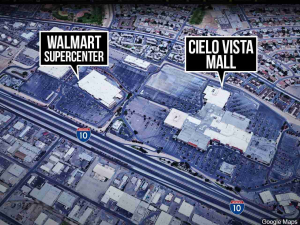
We are at war with fundamental changes that must occur if the country, and the world, are to be saved from the Industrial Revolution.
We’re also at war with the essentials of economic growth in our time.
As I have written many times, the gating factor in technology is human capital. Trained, eager, free minds, willing to think the previously unthinkable, to model it and make it reality. This is where money is made today.
The more such people you have, the fewer of the other kind, the more money you make. The more freedom these people have, the greater their access to money, to new ideas, and to one another, the more your society prospers. This is Israel’s secret sauce.
Resources don’t matter. Machines don’t matter. Muscle doesn’t matter. Minds matter, more than anything.
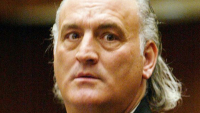
For people unwilling to face such change, free thought is a threat. This has been true throughout my life.
When I was a child, suburbs like Massapequa, on Long Island, were the real America. Our neighbor on one side was a devout Jew. Our neighbor on the other side was a devout Catholic. Each was free to follow their path. The men would meet in the marketplace, every weekday from 9 to 5, then come home to their different lives.
Back then, Massapequa also had very good public schools. Massapequa schools taught its children to think for themselves.
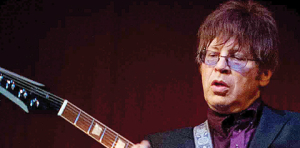
The absolutism of Massapequa would drive you crazy if you stayed. One neighbor who did, just two blocks from my house, was a kid named Joey Buttafuoco (above). He was considered a “good” kid, who worked on cars in his spare time. On an adjacent block, in the other direction, was another kid named Elliot Easton (right). He was considered a “bad” kid, who played a guitar in his spare time. Very loudly.
A technology society rewards creativity. It rewards thinking differently. It rewards what Massapequa called “bad,” not what it called “good.” It rewarded Elliot. It did not reward Joey. I tried very hard to be conventional and was rewarded with a college scholarship in 1973. The scholarship got me out. It saved my life.
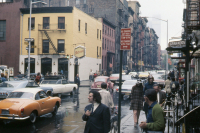
Changing minds are like atoms in solution. The more concentrated the solution, the hotter the reaction. Early in the 1970s, I used my dad’s Long Island Railroad pass to spend weekends in New York City. New York felt white hot. New York was a highly concentrated solution. But that New York had a flaw. The money, south of Canal Street, was separated from the creativity uptown. Gradually, as I watched, these conflicts began taking the city down.
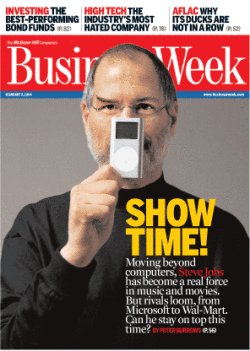
Technology, and its need for concentrated solutions of active minds creating value, reversed the development pattern of my youth. The college towns, and their values, have now taken over our cities. Suburbs, devoted to organizing stability, are withering.
As the Creative Class gathered wealth, it also began gathering power. In 2008 it won its first majority.
But what looked at the time like a triumph was just the start of a new civil war. Like the phony clues in a detective novel, it was too easy.
Grow up in any suburb today and you can feel it. Power and certainty are ebbing away. Massapequa is everywhere. Anyone whose mind is rigid can feel the threat. They can hear it in the music, see it on TV. Black people, brown people, Indian and Chinese people, gay people and immigrants, they’re all getting ahead by their willingness to learn. Technology is changing America beyond recognition, faster and faster.

This is the problem technology must now solve. We need freedom in order to grow. We need change to accelerate in order to survive. But those who resist change can use technology, too. They used it to radicalize Muslim youth before and after 9/11. They have used it to radicalize Christian youth in this decade.
Racism, fascism and religious extremism are all intolerant at their core. Technology demands tolerance as a price of admission. Does this mean technology must tolerate intolerance?

Liberty. Democracy. Capitalism. They’re all at stake in this war. The other side has guns. They can radicalize children and loose them like bombs against us, anywhere and at any time.
But we’ve been here before. Times of peril are always times of violence. The Civil War was violent. The 1890s were violent. World War II was violent. The 1960s were violent. From that violence, democracy and liberty rose triumphant. Markets found their way through the violence to the side of democracy, of liberty, and of change.
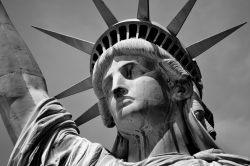
That’s why I retain my faith that we’ll get through this war. But within the crucible, I know, it’s hard to see. Read a newspaper from 1863, or 1895. Watch a newsreel from 1935, or 1943. Watch a newscast from 1967. Or just turn on cable.
In the eye of the hurricane there is quiet, there is quiet. A yellow sky. And you don’t know when the storm will end, or what might be left when it does. Everything is in the balance. Everyone holds their breath. All about is uncertainty.
I remain certain of the past, and the values of ordered liberty it has taught me to hold dear. It is those values that will get us through this, too. This, too, shall pass.


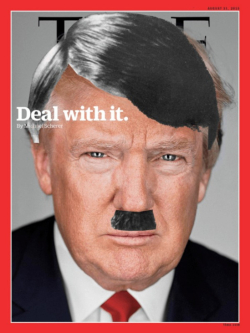








There are certainly a lot of details like that to take into consideration. That is a great point to bring up.
There are certainly a lot of details like that to take into consideration. That is a great point to bring up.
Could not agree more
Could not agree more